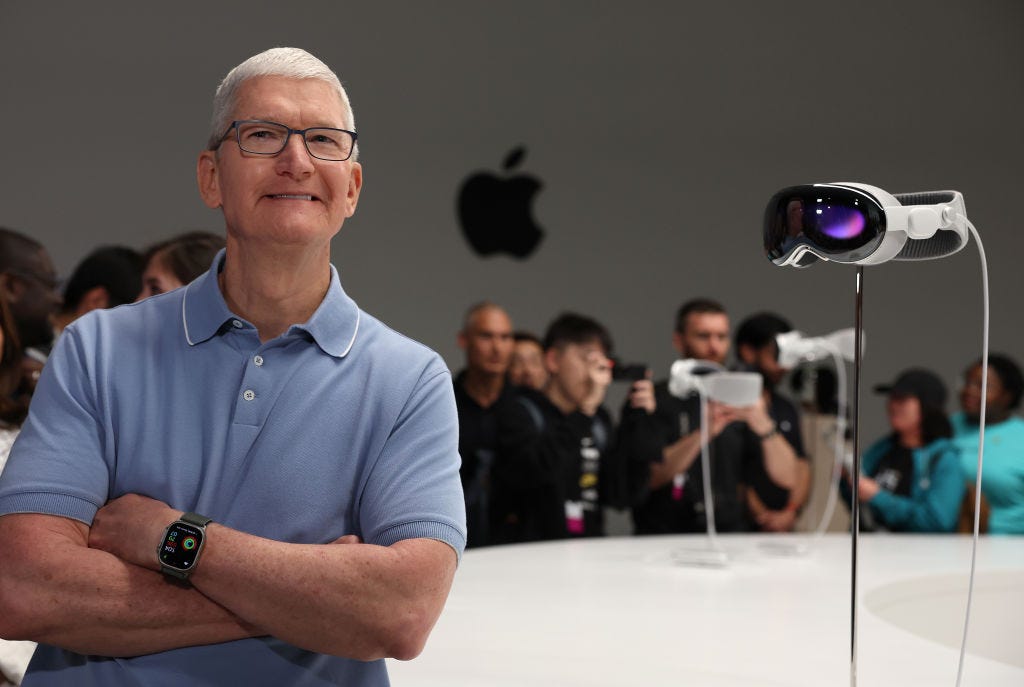Hello and welcome to the latest edition of Off to Lunch…
Talking about house prices is a traditional British pastime. But sometimes, like today, there is plenty of insight to be gained from it. New data from Nationwide has indicated that the housing market may be turning a corner at the start of 2024 and that consumers are starting to feel more optimistic.
House prices rose by 0.7 per cent month-on-month in January, according to Nationwide, the building society. This is much better than the 0.1 per cent rise that economists had expected, according to a consensus compiled by Reuters. House prices are still down 0.2 per cent year-on-year, which is even more significant when you consider inflation was running at close to 10 per cent for much of the last 12 months. But this is a notable improvement on the 1.8 per cent year-on-year drop that was reported for December.
This report from Nationwide is not the only data showing a pick-up in the housing market. Zoopla, the property website, said on Monday that the number of property sales in January was up 13 per cent year-on-year while the Bank of England reported on Tuesday that mortgage approvals have edged up and that the average interest rate on new borrowing had fallen for the first time in two years.
Robert Gardner, chief economist at Nationwide, said:
“There have been some encouraging signs for potential buyers recently with mortgage rates continuing to trend down. This follows a shift in view amongst investors around the future path of Bank Rate, with investors becoming more optimistic that the Bank of England will lower rates in the years ahead…
“While a rapid rebound in activity or house prices in 2024 appears unlikely, the outlook is looking a little more positive. The most recent RICS survey suggests the decline in new buyer enquiries has halted, while there are tentative signs of a pickup in the number of properties coming onto the market.”
Here are some interesting graphs from the Nationwide report. Firstly, this is the movement in the average house price in the UK over the last decade:
Secondly, this graph shows how financial markets expect the Bank of England to move interest rates in the year ahead. The blue-line is the current implied forecast…
The next graph shows how much first-time buyers in different parts of the UK are earning. It suggests that first-time buyers in London earn nearly 60 per cent more than the average working adult in the capital - in other words, only high-earners can afford to buy a property…
Finally, this last graph shows that property is still expensive compared to recent history, despite the recent fall in house prices, at least relative to average earnings…
You can find the full Nationwide report here
Other stories that matter…
1. H&M, one of the biggest fashion retailers in the world, has named 42-year-old Daniel Erver as its new chief executive. He succeeds Helena Helmersson as boss having worked at the Swedish company for 18 years. Helmersson has spent four years as chief executive and said the role had been “very demanding at times for me personally”. Shares in H&M have fallen 10 per cent today following the announcement. More from Reuters here
2. A judge in Delaware in the United States has voided a $56 billion (£44 billion) pay package for Elon Musk. The judge’s decision said that Musk had controlled the process at Tesla to set his pay. It said: “In the final analysis, Musk launched a self-driving process, recalibrating the speed and direction along the way as he saw fit. The process arrived at an unfair price. And through this litigation, the plaintiff requests a recall.” You can read more here. Musk has taken the news as well as you would expect…
3. Rishi Sunak has unveiled a new business council that includes the chief executives of BT, Nationwide, Unilever, Rolls-Royce and other big companies. Tom Beahon of Castore, a recent guest on our Business Leader podcast, is one of the members. The chief executives will have a monthly meeting with the prime minister in which they will “share intelligence directly from the shop floor to help boost the UK economy and create jobs”. You can find more details here. Meanwhile, Labour’s shadow chancellor Rachel Reeves and the mayor of London Sadiq Khan have written a column for CityAM in which they say: “The next Labour government will lay foundations for business to thrive, so our people can too. New ideas will be embraced, barriers to growth will be removed, every pound of investment will be fought for, and we will loudly and proudly champion the sectors in which we excel. The shared goal of Labour and financial services is progress – and in partnership, we will succeed for the benefit of all.” You can read that here.
4. One in five drinkers have given up alcohol for Dry January, according to a new survey. That means a record number of people have gone alcohol-free in January. You can read more on that in a BBC story here. Bloomberg Businessweek has done a big feature on the companies developing alcohol-free drinks to target this growing market. The new products include Sentia, a plant-based spirit which claims to offer the buzz of alcohol without the hangover. More here
5. A new report by the University of Pittsburgh has looked at 137 of the largest companies in the US that ordered staff to return to the office. “We do not find significant changes in firm performance in terms of profitability and stock market valuation after the return-to-office mandates.” That was the conclusion of the academics. You can read a new story on the study here and the study itself here
Podcast…
The latest episode of our Business Leader looks at the story behind Sir Stelios Haji-Ioannou and easyJet. Sir Stelios discusses how he built the airline, how it used distinctive marketing to fight fierce competition, how fly-on-the-wall documentary Airline became one of the most popular shows on television, and why he has launched a new award for young entrepreneurs.
You can listen to the episode on Substack here, Apple here or Spotify here
And finally…
The first reviews of the Apple Vision Pro have landed ahead of the release of the headset on Friday. The reviews pretty much say the same thing - this is a remarkable device that provides a glimpse of the future, but at a price of $3,499 (£2,800) it is not clear who will actually buy it and why. You can read a helpful round-up of the reviews by The Guardian here and find out more about the product from Apple here
Thanks for reading. If you enjoy Off to Lunch then please share it with others and spread the word. If this newsletter was shared with you then please sign-up below to get Off to Lunch sent directly to your inbox
Best
Graham












